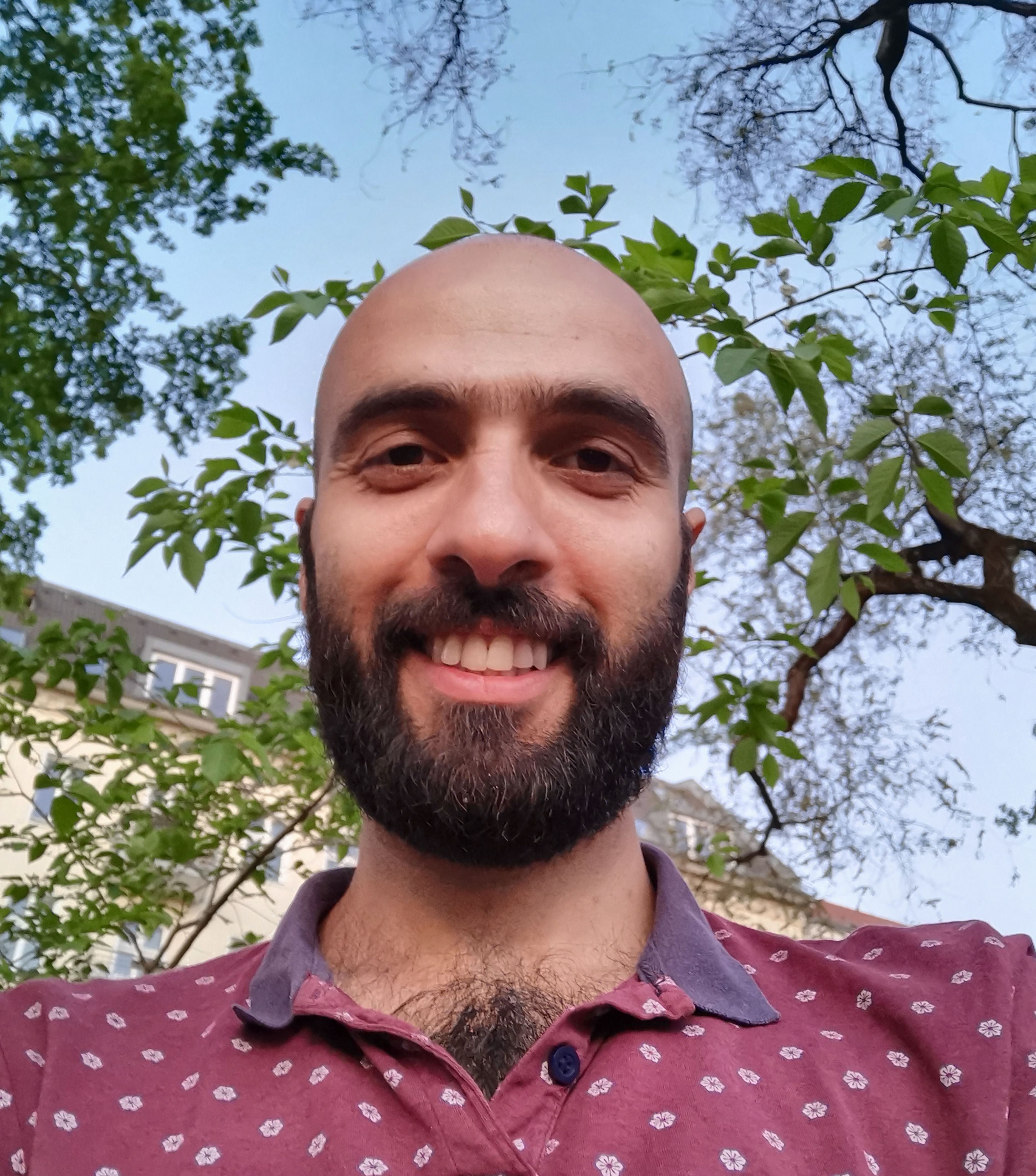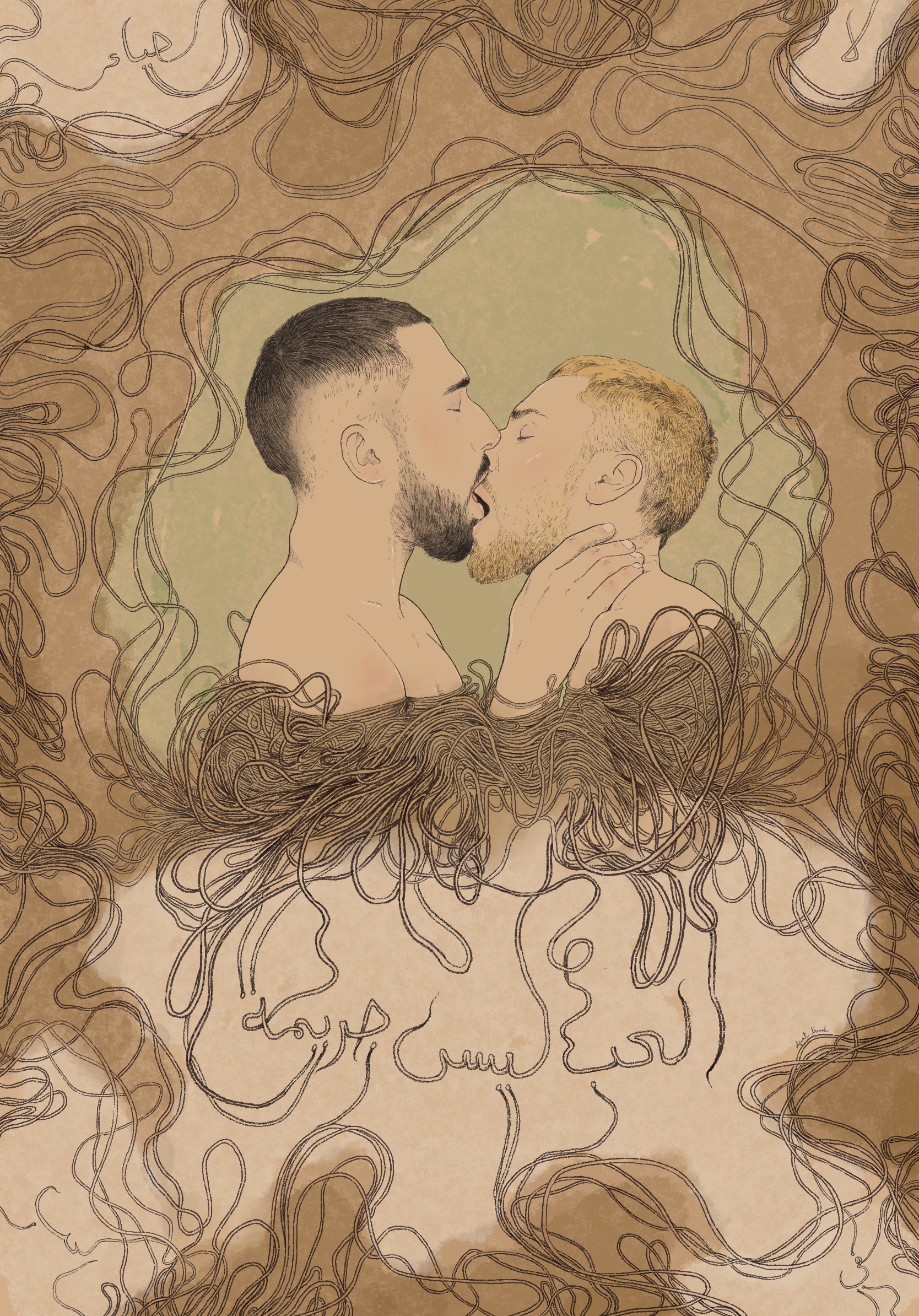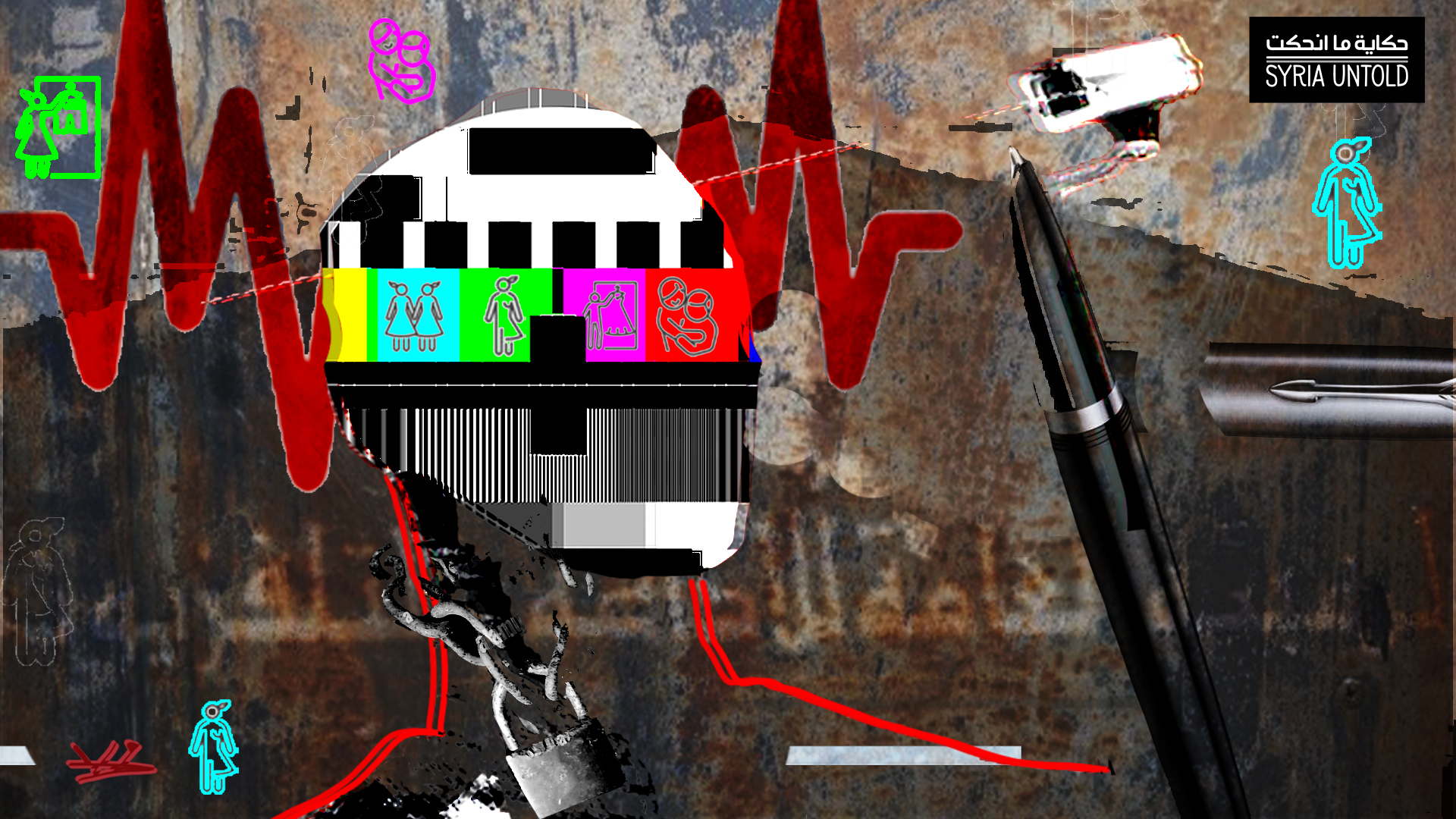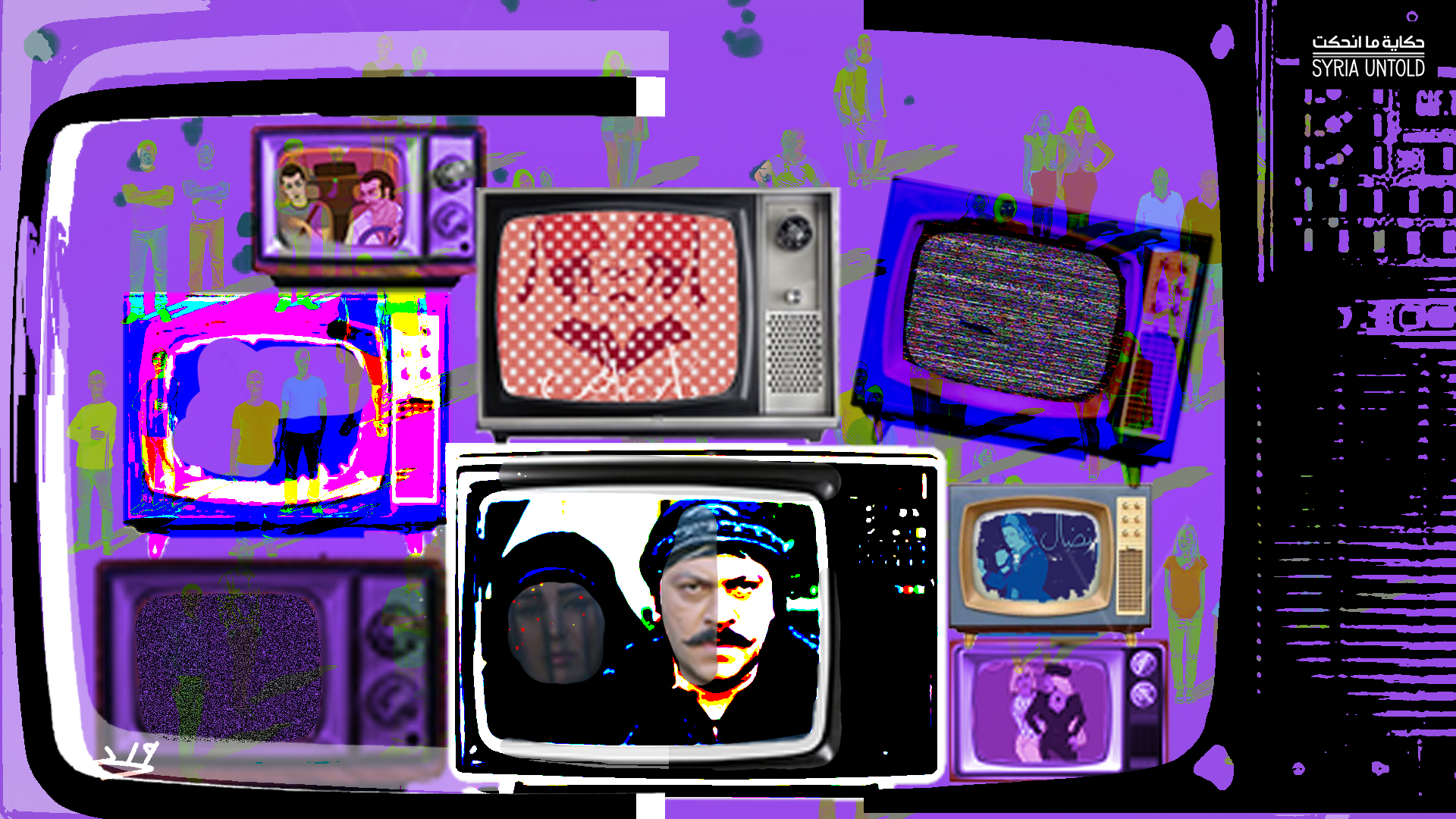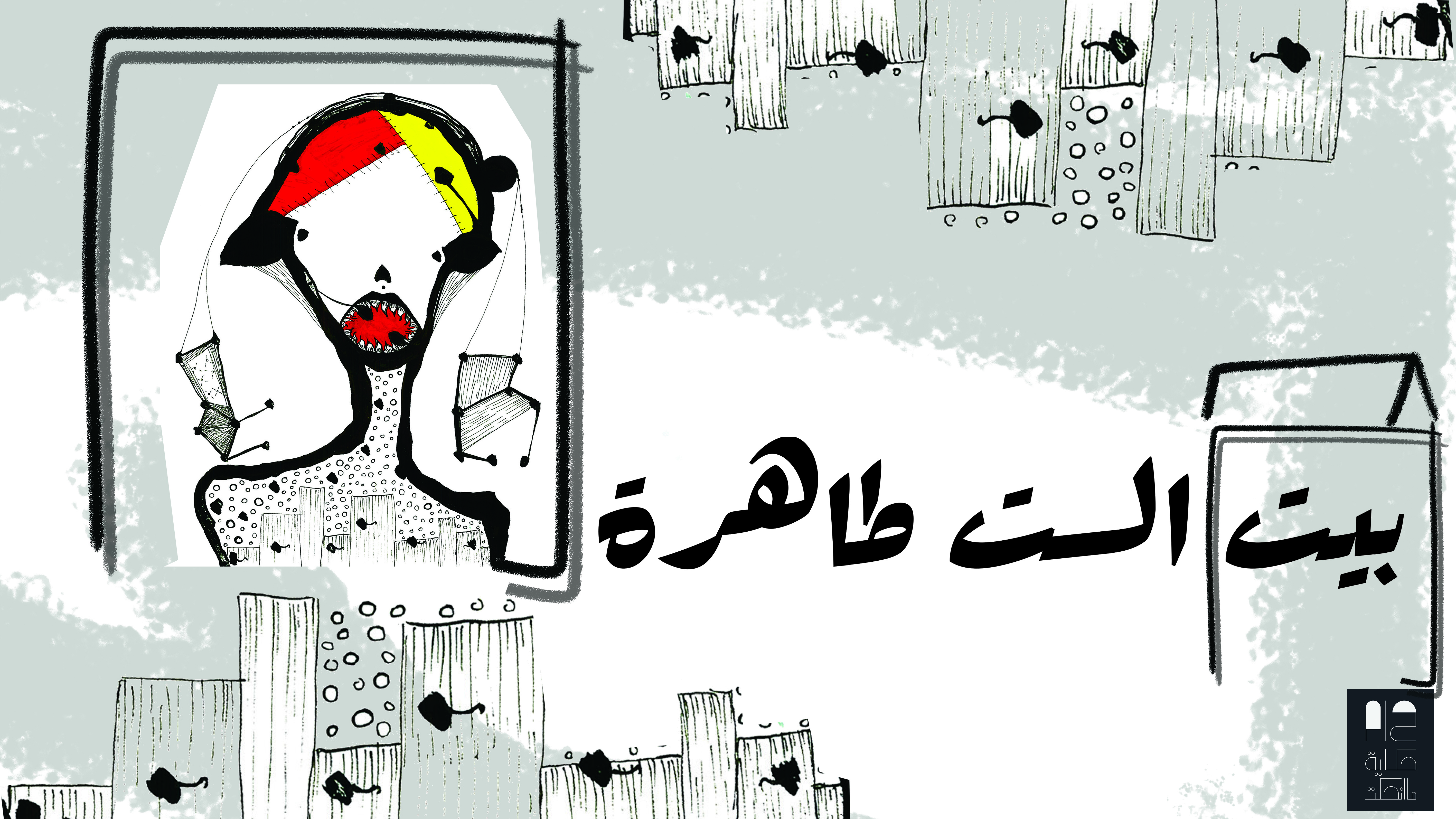To place Alqumit's artwork in its Syrian context, it's worth noting that whenever they got nothing better to do, members of the Assad family mention individuals from the LGBTIQ community to criticize what they repeatedly refer to as "modern liberalism." Bashar and Asmaa’ Al-Assad again associated it with supposed moral decay and the destruction of traditional family structures and human nature, among other tiresome ideas, often echoed by countries like Syria, Russia, and China to the point of boredom.
In one of these failed theatrical performances, Asmaa’ Al-Assad, during her visit to China in September 2023, mentioned queerness and transness in a speech she delivered at a foreign university there, warning against "tampering with human gender, hybridizing it, and creating a third gender from it, which messes with language and hybridizes it. Both actions are the essence and foundation of modern liberalism, from moral decadence to imposing deviant concepts that contradict the image of a healthy family against human nature." Here, Asmaa’ follows in the footsteps of her husband, who made similar remarks in his speech delivered in late 2020 in Damascus during a meeting of the Ministry of Religious Endowments for male and female scholars at the Uthman Mosque, where he also warned against the promotion of homosexuality and gender fluidity by "modern liberalism."
For a war criminal to criminalize the LGBTIQ community as a diversion from their ongoing crimes against the Syrian people is the height of irony and an insult to people's intelligence. It is a tired rhetoric that no longer holds even with the most vehement opponents of queer and trans people. Hopefully, there will come a day when love in Syria is not a crime, regardless of gender and sexual orientation.
Love is not a crime, an artwork by the visual artist Alqumit Alhamad, originally from Raqqa, born in Jordan and raised in Cyprus and Syria, now resides in Sweden. A self-taught artist, his work spans watercolor, sculpture, installation, text, and video. Rooted in displacement, his art explores themes of diaspora, memory, and belonging, showcased in international venues like The British Museum and Liljevaclhs Konsthall. With degrees from Aleppo University and Östra Grevie folkhögsolka, he's pursuing a Master’s at HDK Valand, University of Göteborg. Recognized for his art, he's received grants from institutions like the Adlerbertska Foundation and was nominated for The Swedish King’s Carl XVI Gustaf Young Leader Scholarship. His website: www.alqumit.com


